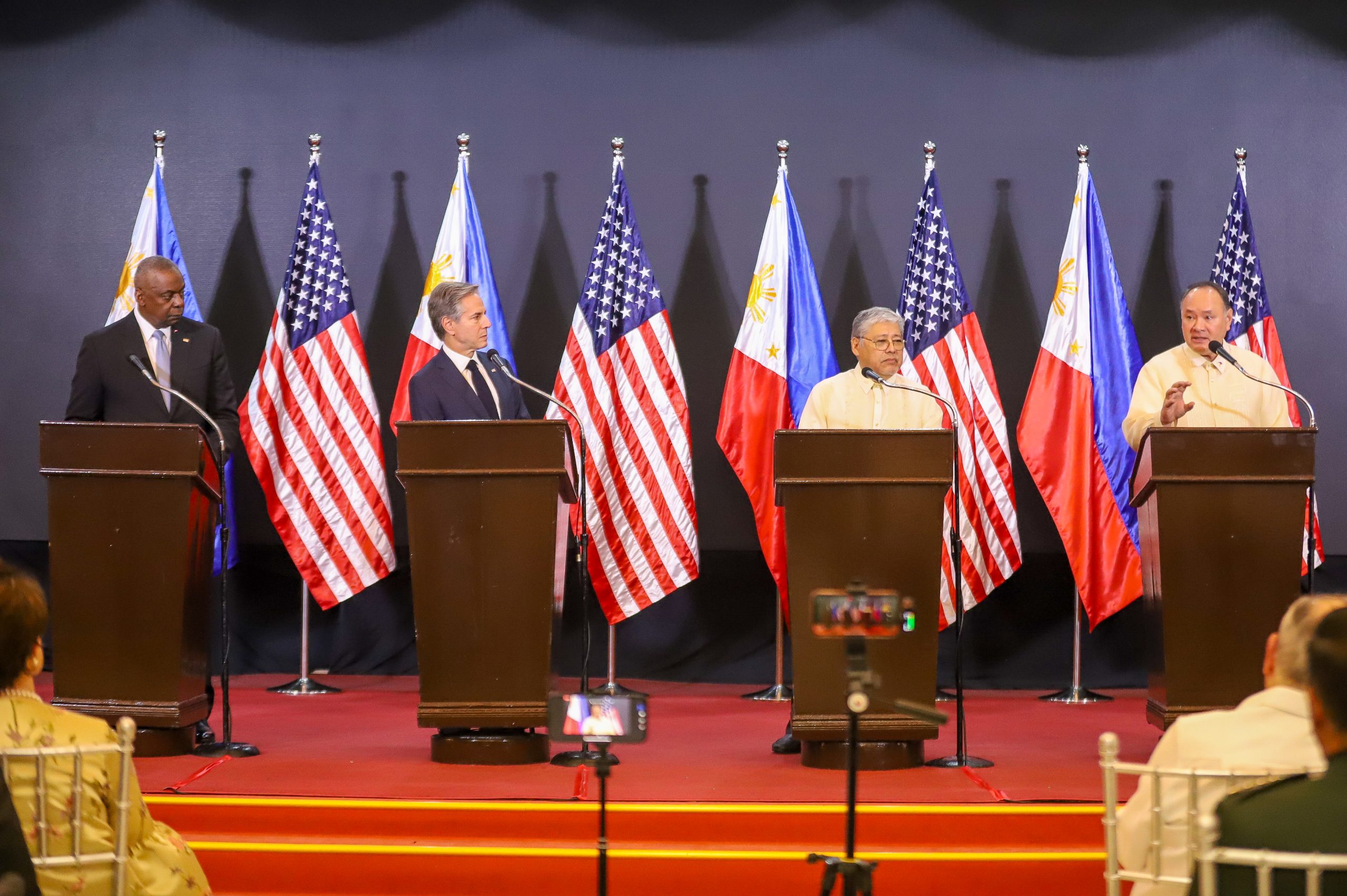Headline
Security roadmap inked; US aid assured regardless of new president

ALLIES. United States Defense Secretary Lloyd Austin III and Secretary of State Antony Blinken, and the Philippines’ Foreign Affairs Secretary Enrique Manalo and Defense Secretary Gilberto Teodoro Jr. (from left) hold a press conference after convening the 2+2 ministerial meeting at Camp Aguinaldo in Quezon City on Tuesday (July 30, 2024). Blinken said the US’ defense and security support to the Philippines will continue whoever wins the US presidential election in November. (PNA photo by Robert Oswald P. Alfiler)
By Joyce Ann L. Rocamora, Philippine News Agency
MANILA – The United States’ defense and security support to the Philippines will continue whoever wins its presidential election in November, State Secretary Antony Blinken affirmed Tuesday.
“Elections are a regular feature of our democracy. What’s also a regular feature is a strong, longstanding alliance between our countries, and that doesn’t change from election-to-election,” Blinken said in a joint presser at Camp Aguinaldo in Quezon City.
The assurance was buttressed by the announcement of the first ever Bilateral Security Sector Roadmap, completed and signed on Monday, a day before the 2+2 Foreign and Defense Ministerial meeting among Blinken, Foreign Affairs Secretary Enrique Manalo, Defense Secretary Gilberto Teodoro Jr. and US Defense Secretary Lloyd J. Austin III.
The roadmap, signed by US Ambassador MaryKay Carlson and Philippine Ambassador Jose Manuel Romualdez, aims to identify priority defense platforms and force packages that will bolster combined deterrence and capacity to resist coercion in the next years.
In the same presser, Austin noted that Manila would continue to see “bipartisan support” as he characterized the Philippine-US ties as a relationship that goes beyond allies.
“I’ve said a number of times that we’re more than allies. We’re family,” he said. “Again, we continue to enjoy bipartisan support, and that’s going to happen going forward in the future.”
In announcing the roadmap, Austin said the plan would ensure that “mutual investments go toward the most important capabilities.”
He bared that the US earmarked USD500 million for the Philippines out of the USD2 billion Indo-Pacific foreign military funding that Washington, D.C. announced in April.
READ. US officials announce $500-M grant for AFP, PCG modernization
Meanwhile, Manalo echoed the two ministers’ optimism as he noted the continuously growing US-Philippines partnership, which he said has reached its “high point.”
“The fundamental factors accounting for all of that is not only our shared adherence to democratic values, to social justice, but also the strong people-to-people relationship, which has really been the bedrock of our relationship,” he said.
“I can say that, aside from having shared interests, shared strategic outlook, all those factors will combine to ensure that our relationship continues beyond perhaps seven decades, and even more so,” he added.
During the 2+2 meeting, the four ministers reaffirmed both nations’ commitment to the alliance and discussed various subjects such as economic and defense cooperation, including the current situation in the West Philippine Sea.
“Let me end by emphasizing that the Philippines will continue to uphold and protect the rules-based international order in the midst of a regional landscape that is significantly under stress,” Manalo said on the South China Sea issues.
“In our discussions, I have conveyed the situation in the West Philippine Sea and the South China Sea, and that remains a priority to our government. In line with our treaty obligations, we discussed recent developments and committed to continue our work together in upholding Philippine sovereignty, sovereign rights, and jurisdiction.”



























